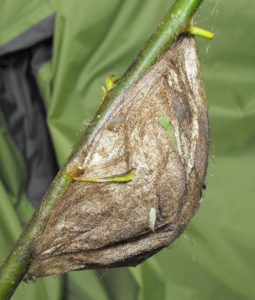 One of the many wonders of nature is a cocoon. A caterpillar encloses itself in a type of tomb and then emerges transformed and flies through the air in the form of a beautiful butterfly. We view this as a type of death and resurrection.
One of the many wonders of nature is a cocoon. A caterpillar encloses itself in a type of tomb and then emerges transformed and flies through the air in the form of a beautiful butterfly. We view this as a type of death and resurrection.
An image for the Gospel today is that of a cocoon. Rather than a transformation into beauty, we witness a deformation into misery. The Gospel never says that this rich man committed any crime, but it seems that he is just so overly focused on himself that he cannot see beyond his clothes, his meals and his own doorstep. His wealth is something that he spends on himself and not something he shares with others. He is so tightly woven into his cocoon that he cannot seem to break out.
This disturbing parable tells us to not be absorbed with ourselves, to pay attention, and to wake up. We need to remember that our possessions are not owned by us, but loaned to us. They are entrusted to us; not only that we can meet our basic needs, but also so that we can help others. St. Augustine described sin as being caved in on oneself. Sin closes us in on ourselves and charity draws us out of ourselves and that is where we find joy.
We’re instructed to pay attention to Moses and the prophets; that is, to pay attention to God’s word given to us in the Scriptures and by Jesus.
And we need to wake up because most of us at times can be like the rich man. And the five brothers – they represent us too. We are not to expect some sort of personalized message, but should instinctively live out our faith by loving God and our neighbor. Actions have consequences, and so do our inactions. We can sin by what we do but we can also sin by what we fail to do.
This Lent, let us pray that we receive the grace to not be imprisoned in the cocoon of self-absorption. Rather, let us strive to live generous and joyful lives not selfishly but selflessly.




